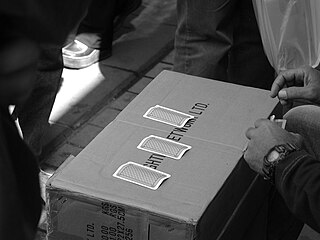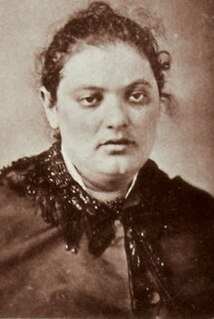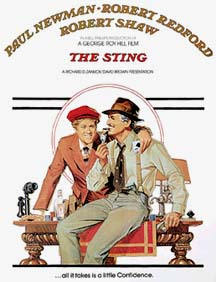
Extortion is a criminal offense of obtaining money, property, or services from an individual or institution, through coercion. It is sometimes euphemistically referred to as a "protection racket" since the racketeers often phrase their demands as payment for "protection" from threats from unspecified other parties; though often, and almost always, such "protection" is simply abstinence of harm from the same party, and such is implied in the "protection" offer. Extortion is commonly practiced by organized crime groups. The actual obtainment of money or property is not required to commit the offense. Making a threat of violence which refers to a requirement of a payment of money or property to halt future violence is sufficient to commit the offense. Exaction refers not only to extortion or the demanding and obtaining of something through force, but additionally, in its formal definition, means the infliction of something such as pain and suffering or making somebody endure something unpleasant.
The Spanish Prisoner is a confidence trick originating in the late 19th century. In its original form, the confidence trickster tells his victim that he is a wealthy person of high estate who has been imprisoned in Spain under a false identity. Some versions had the imprisoned person being an unknown or remote relative of the mark. Supposedly the prisoner cannot reveal his identity without serious repercussions, and is relying on a friend to raise money to secure his release. In this classic pigeon drop game archetype, the confidence trickster offers to let the mark put up some of the funds, with a promise of a greater monetary reward upon release of the prisoner plus a non-pecuniary incentive, gaining the hand of a beautiful woman represented to be the prisoner's daughter. After the mark has turned over the funds, he is informed further difficulties have arisen, and more money is needed. With such explanations, the trickster continues to press for more money until the victim is cleaned out, or declines to put up more funds.

A charlatan is a person practicing quackery or some similar confidence trick or deception in order to obtain money, fame or other advantages via some form of pretense or deception. Synonyms for "charlatan" include "shyster", "quack", or "faker". "Mountebank" comes from the Italian montambanco or montimbanco based on the phrase monta in banco - literally referring to the action of a seller of dubious medicines getting up on a bench to address his audience of potential customers. "Quack" is a reference to "quackery" or the practice of dubious medicine or a person who does not have actual medical training who purports to provide medical services.

The shell game is portrayed as a gambling game, but in reality, when a wager for money is made, it is almost always a confidence trick used to perpetrate fraud. In confidence trick slang, this swindle is referred to as a short-con because it is quick and easy to pull off. The shell game is related to the cups and balls conjuring trick, which is performed purely for entertainment purposes without any purported gambling element.
Email fraud is the intentional deception made for personal gain or to damage another individual through email. Almost as soon as email became widely used, it began to be used as a means to defraud people. Email fraud can take the form of a "con game" or scam. Confidence tricks tend to exploit the inherent greed and dishonesty of their victims. The prospect of a 'bargain' or 'something for nothing' can be very tempting. Email fraud, as with other 'bunco schemes' usually targets naive individuals who put their confidence in get-rich-quick schemes such as 'too good to be true' investments or offers to sell popular items at 'impossibly low' prices. Many people have lost their life savings due to fraud.
Harry Lorayne is an American magician and a memory-training specialist and writer who was called "The Yoda of Memory Training" by Time magazine. He is well known for his mnemonic demonstrations and has appeared on numerous television shows including The Tonight Show Starring Johnny Carson. His book The Memory Book was a New York Times bestseller. His card magic, especially his innovations in card sleights, is widely emulated by amateur and professional magicians.

Detroit Rock City is a 1999 American comedy film directed by Adam Rifkin and written by Carl V. Dupré. It tells of four teenage boys in a Kiss tribute band who try to see their idols in concert in Detroit in 1978. Comparable to Rock 'n' Roll High School, Dazed and Confused, The Stöned Age, and I Wanna Hold Your Hand, it tells a coming-of-age story through a filter of 1970s music and culture in the United States. It ultimately took its title from the Kiss song of the same title.
Pigeon drop is a confidence trick in which a mark or "pigeon" is persuaded to give up a sum of money in order to secure the rights to a larger sum of money, or more valuable object.

Three-card Monte – also known as Find the Lady and Three-card Trick – is a confidence game in which the victim, or "mark", is tricked into betting a sum of money, on the assumption that they can find the "money card" among three face-down playing cards. It is the same as the shell game except that cards are used instead of shells.

Google Pay Send is a peer-to-peer payments service developed by Google that allows people to send and receive money from a mobile device or desktop computer at no cost to either sender or receiver. When set up, a Google Pay account must be linked to an existing debit card or bank account in the United States or United Kingdom. Google Pay Send can be used through the Google Pay Send app and Gmail. The app is available for Android devices running Android 4.0 and above, and for iOS devices running iOS 7.0 and above.

Penn & Teller's Cruel Tricks for Dear Friends is a 1987 direct-to-video program hosted by magicians Penn & Teller. Produced by The Mofo Video Corp. and released by Lorimar Home Video, the tape features seven different swindles or tricks that the home viewer can use to fool their friends. The tape was a companion piece to their best-selling book of the same name, released two years later. All of the tricks involve using a portion of the videotape.
The patent safe game was a confidence trick much practiced during the late Civil War in and around New York City. It is a variation on the coin-matching game, in which the person to be scammed believes they are party to a trick only they and a second person know.
A swindler is generally a charlatan, a person practicing quackery, fraud, or similar confidence trick in order to obtain money, property, or advantage by pretense.
A mock auction is a scam usually operated in a street market, disposal sale or similar environment, where cheap and low quality goods are sold at high prices by a team of confidence tricksters.
Tom O'Brien was an American confidence man and swindler during the late 19th century. He was popularly known as "King of the Banco Men", along with other prominent tricksters such as Joseph "Hungry Joe" Lewis and Charles P. Miller, and organized countless banco and confidence schemes throughout the United States, especially in New Orleans, Chicago and New York, as well as in Europe. He often partnered with a number of confidence and banco men such as Lon Ludlam, Red Adams, Frank Smith, Pete Carlisle, Ed Ray, Red Austin, Charley Hinnell, "Hungry Joe" Lewis and Reed Waddell. He later shot and killed Waddell in an argument over money following a scheme they had run in Paris, France.
The green goods scam, also known as the "green goods game", was a fraud scheme popular in the 19th-century United States in which people were duped into paying for worthless counterfeit money. It is a variation on the pig-in-a-poke scam using money instead of other goods like a pig.

Fortune telling fraud, also called the bujo or egg curse scam, is a type of confidence trick, based on a claim of secret or occult information. The basic feature of the scam involves diagnosing the victim with some sort of secret problem that only the grifter can detect or diagnose, and then charging the mark for ineffectual treatments. The archetypical grifter working the scam is a fortune teller who announces that the mark is suffering from a curse that her magic can relieve, while threatening dire consequences if the curse is not lifted.

Bertha Heyman was a 19th-century American criminal, also known as "Big Bertha" or the "Confidence Queen." She was described by famed New York City detective Thomas F. Byrnes as "one of the smartest confidence women in America", and was considered by the New York City police to be "the boldest and most expert of the many female adventuresses who infest the country." She managed to swindle several men out of a total of many thousands of dollars, even while behind bars.











